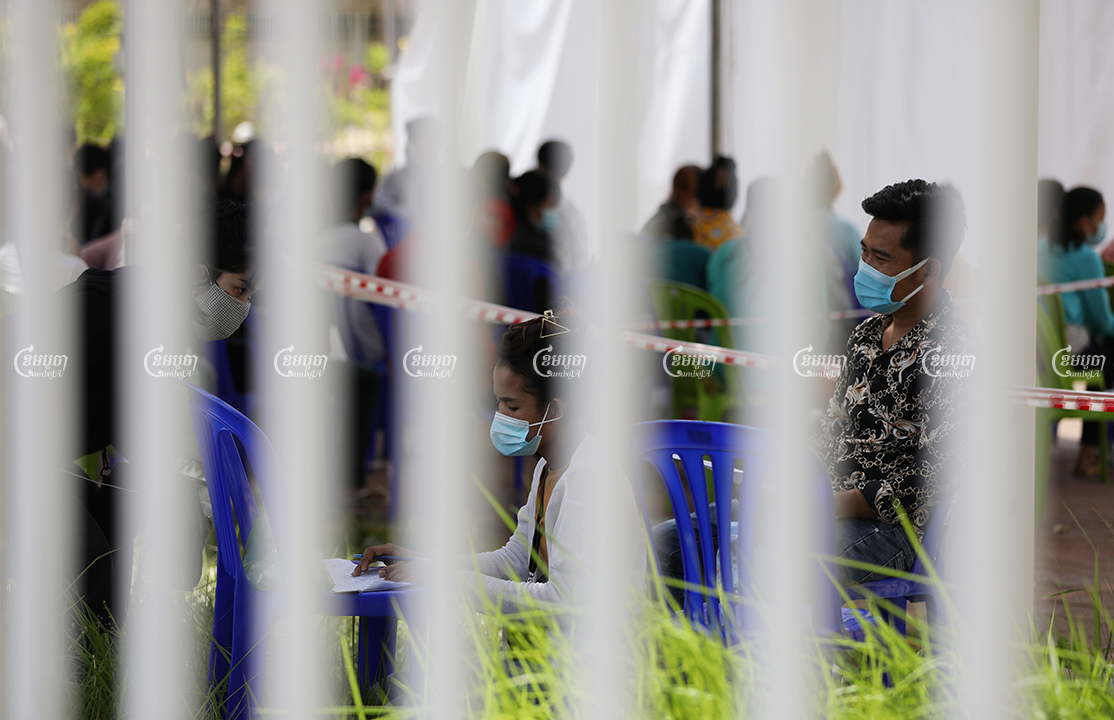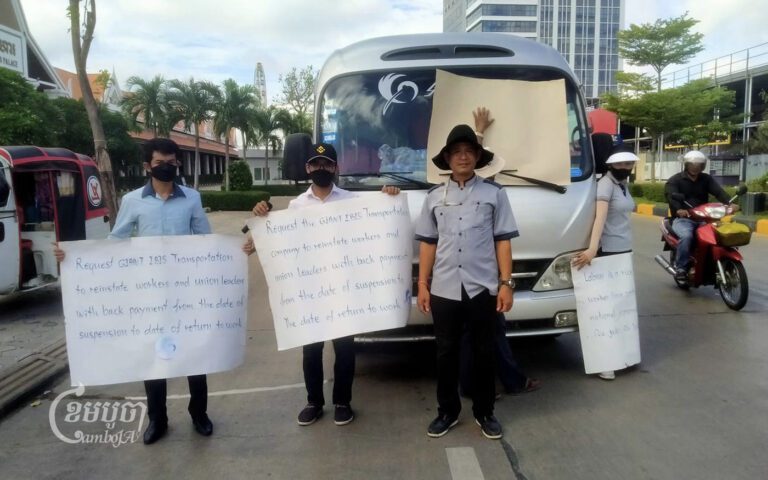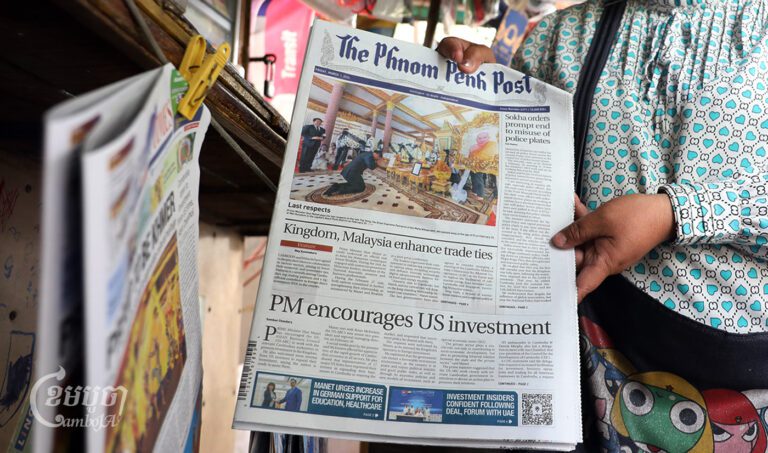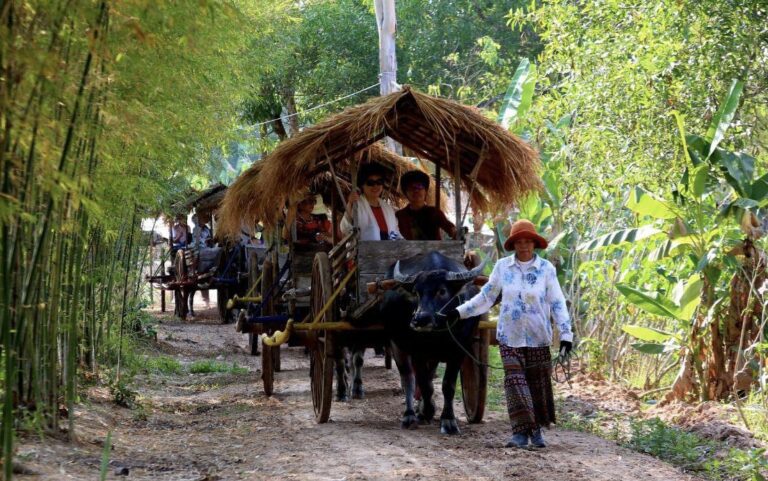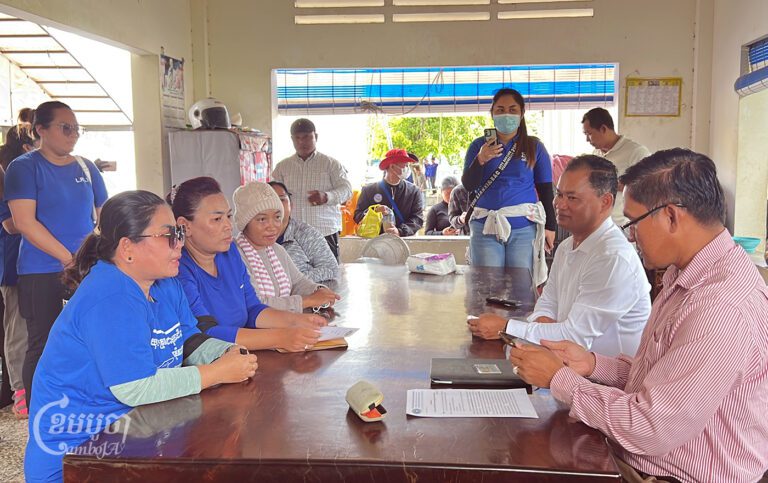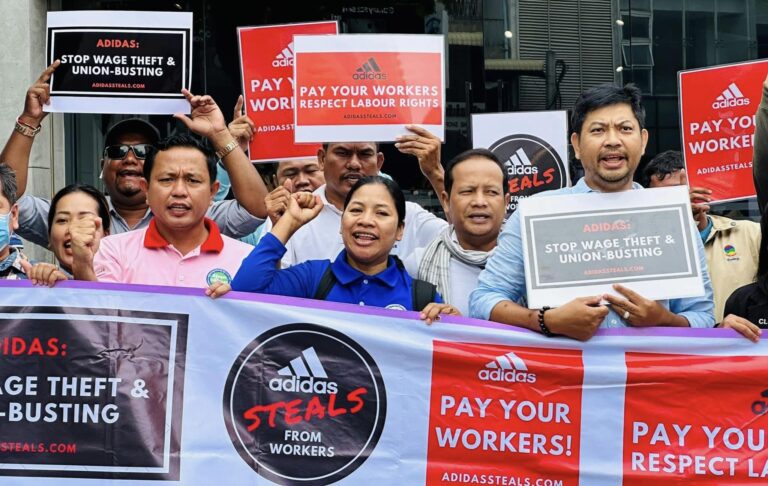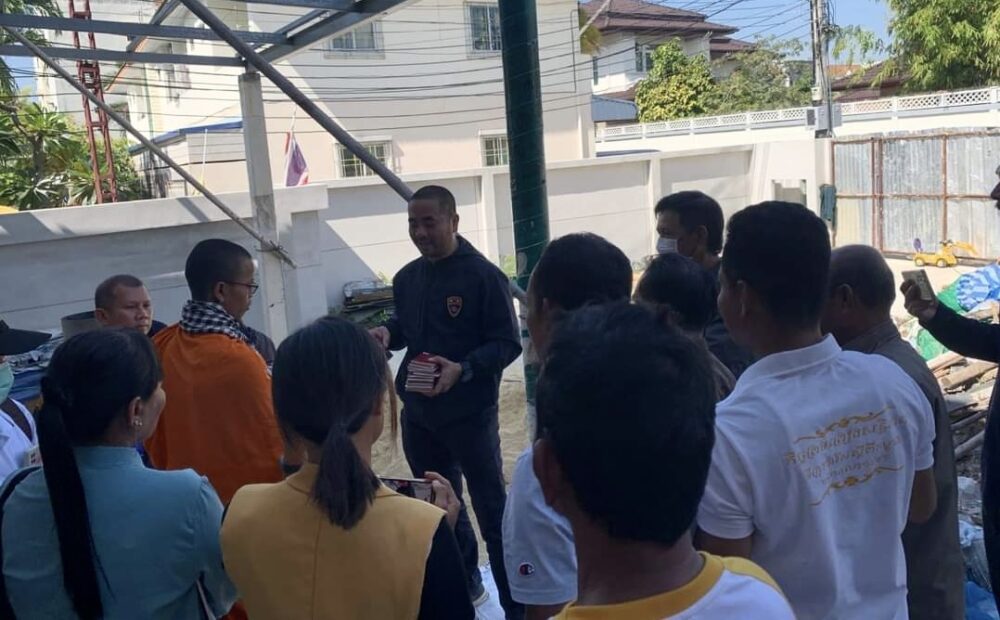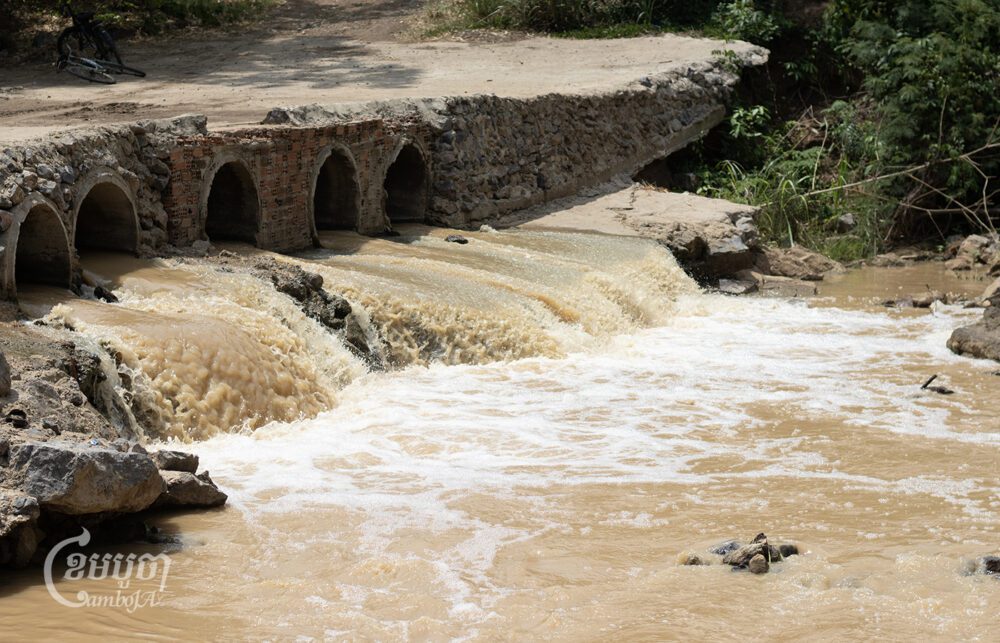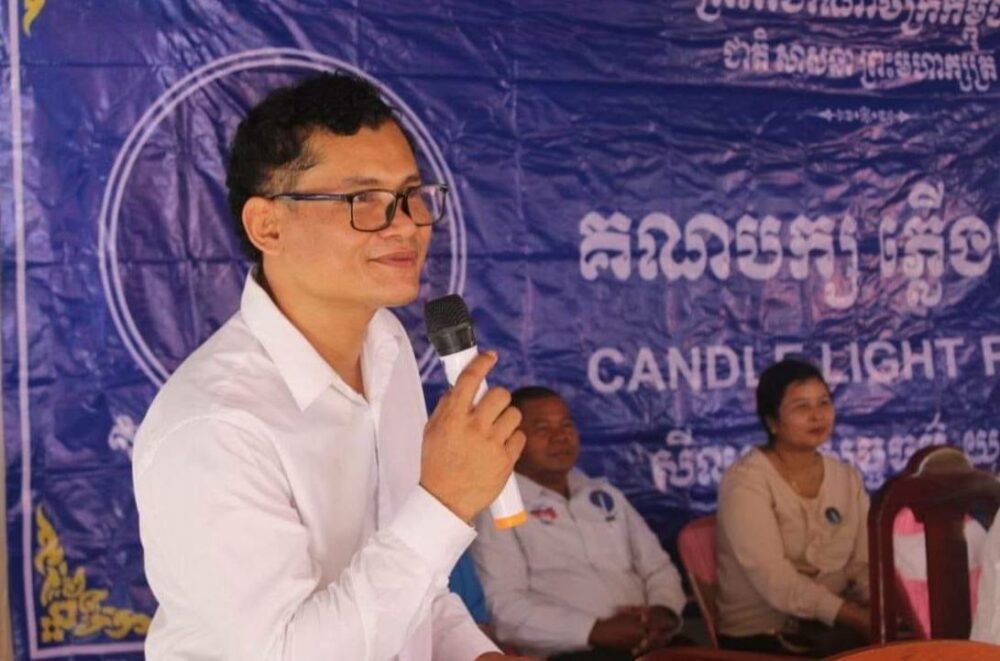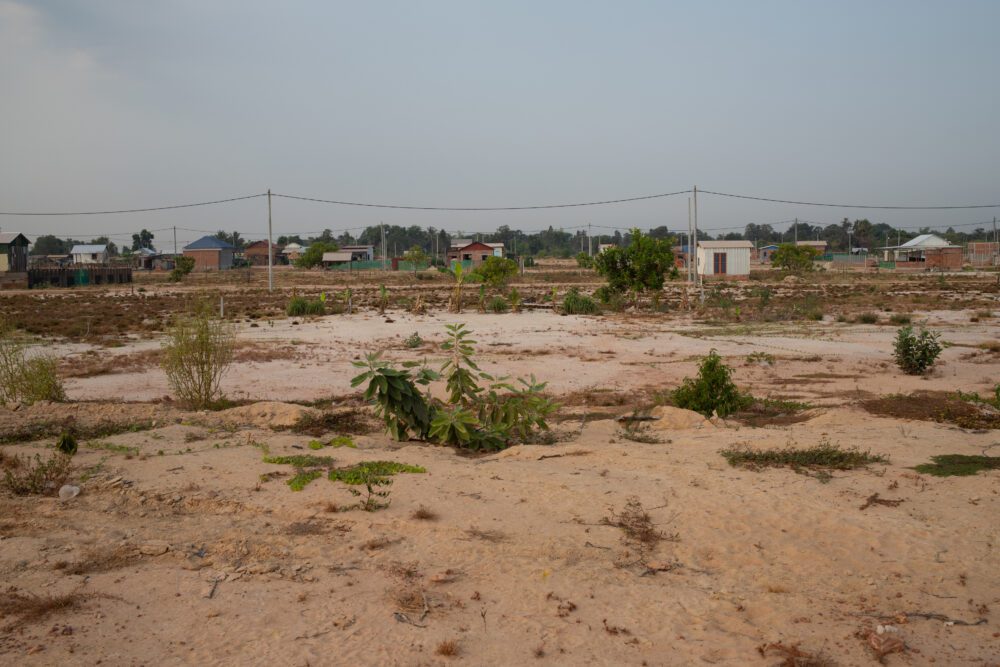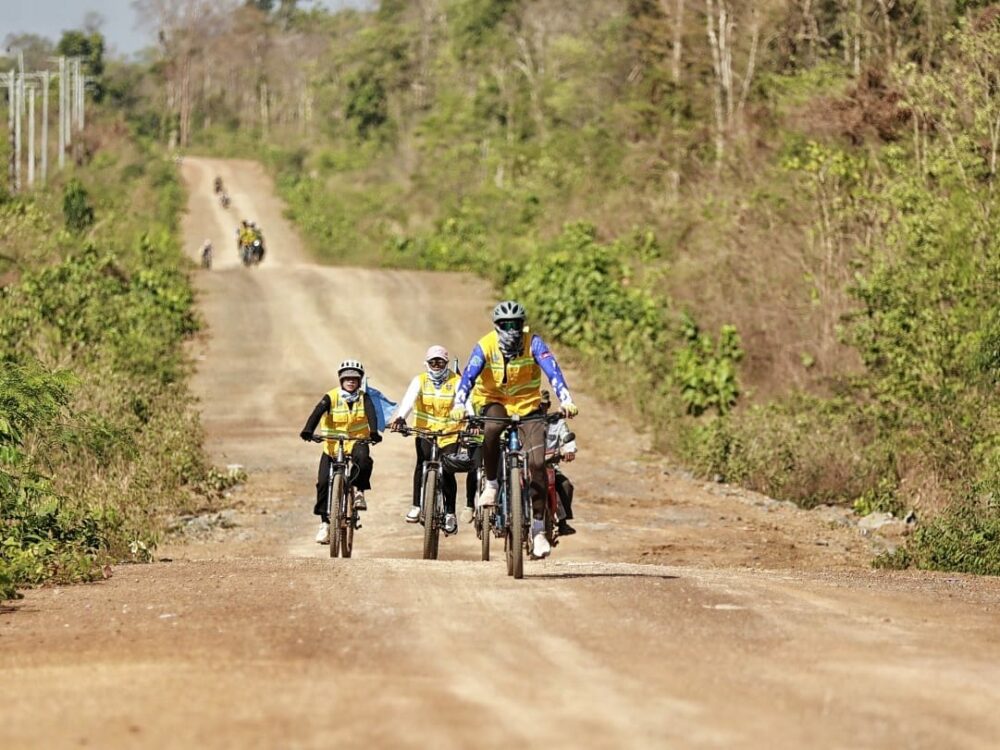Phnom Penh City Hall announced late Friday night that all people living in the red zones must be tested for COVID-19, as infections continue to rise in spite of a citywide lockdown. But crowding at the city-run testing sites Saturday led to a revised directive requiring only certain red zone residents to be tested.
In a separate statement, the municipality announced all market workers across the city were required to be tested, and that both state run and unregulated markets will be closed.
Ten people died Friday, bringing the total death toll to 71 — all from the latest outbreak. Health officials have recorded 8,810 new infections since the February 20 community event, with a total overall case count of 9,359 cases since the start of the pandemic in early 2020.
In the announcement issued Friday, Phnom Penh Governor Khuong Sreng said seven testing sites had been established and that if people “do not cooperate or escape from getting the COVID-19 test as announced, [they] will face legal action as stated in the COVID-19 Law.”
Those zones include the Meanchey district communes of Stung Meanchey 1, 2, and 3; the Pur Senchey district commune of Choam Chao I; and, in Toul Kork district’s Boeng Salang commune, the villages numbered 14, 16 and 17.
In a separate announcement, the city said all “state-run and unregulated markets” would be closed for 14 days, as they had been found to be a major source of community spread. The same statement ordered all market vendors, staff, and security guards who had been working since April 14 to get tested for COVID-19 and to quarantine for 14 days, regardless of where they lived.
The authorities in all 14 districts in Phnom Penh are to be responsible for monitoring compliance, with legal action for anyone who fails to follow the directive, it said. Additionally, those who do not comply, “will not be allowed to continue selling or working when the markets are opened again.”
Kim Santepheap, spokesman of Justice Ministry, said on his official Facebook page that: “Individuals who do not cooperate with health officials to take samples for analysis of the COVID-19 virus shall be punished by a fine from one million riel [$250] to five million riel [$1,250]. The payment of this transaction penalty does not relieve the person who commits this crime from having the obligation to have a health officer take a sample to test for COVID-19 disease.”
Fearing legal action, people in the red zones began flooding to the seven testing sites on Saturday, raising fears of inducing another outbreak.
In light of the concerns, Governor Khuong Sreng issued a statement on Saturday evening setting up more testing sites, and also narrowing the pool of who needed to be tested. In the updated directive, only people who have had direct or indirect contact with someone who tested positive for COVID-19, those living in crowded places, and those with COVID-19 symptoms or suspected infections are mandated to get tested.
The directive also said that the elderly, pregnant women, women who recently delivered babies, the ill, and persons with disabilities who fall under the testing requirements should report to their local authorities, who will send health officials to take samples at their homes.
“For the families who are staying at a safe place in the “red zones” that have no COVID-19 cases, they should continue to stay in their houses and don’t need to test for COVID-19,” the statement added.
On Saturday, City Hall posted on Facebook that it will begin using Olympic Stadium, wedding halls, and other institutions as treatment centers for those with mild cases of COVID-19. Phnom Penh Governor Khuong Sreng, Health Minister Mam Bunheng, and Labor Minister Ith Samheng inspected those locations Saturday.
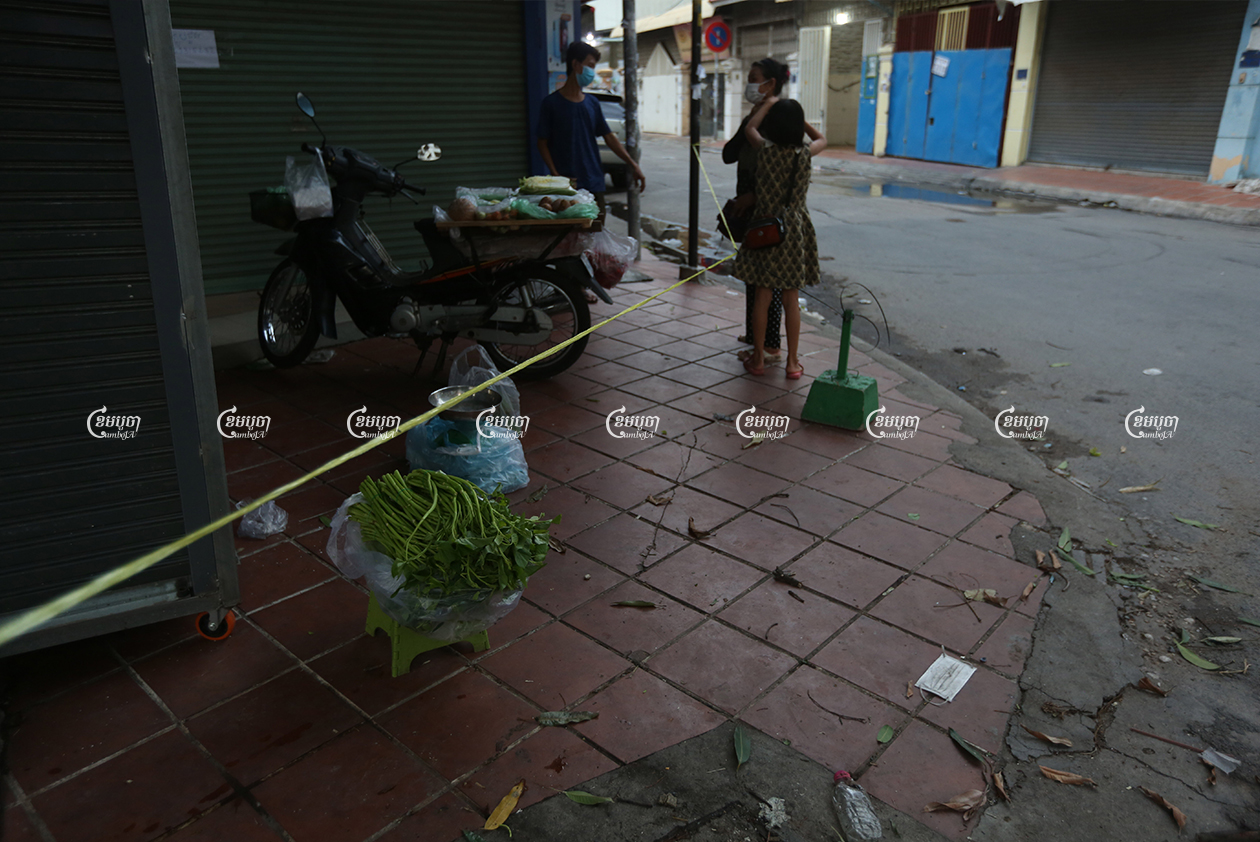
On Saturday morning, a small market near Chea Sim Choukvar High School in Prek Pnov district’s Kork Roka commune was allowed to stay open only in the morning, while health officials walked through to register all vendors for COVID-19 tests.
“Please all vendors know that this market will be closed starting today for 14 days,” a commune representative said through a speaker. “Please all vendors go to provide their samples for testing to find COVID-19.”
A fish seller said she was doing her final sales that morning and afterwards would go to the COVID-19 testing site, before returning home for two weeks.
“After testing, they ordered us to quarantine for 14 days at home,” the vendor said.
The market, like others in the capital, was crowded with people trying to stock up on food after hearing that all markets would be closed for 14 days, though commune officials were on site trying to keep people socially distanced.
Others, unable to go out to buy food — or even to afford it — said they were concerned over how they would feed themselves in the coming weeks.
Sim Chet Oudom, 29, a worker at Din Han Enterprise Factory said that he has stayed in his rental room in Kork Chambak village, in Pur Senchey district’s Choam Chao 1 commune, since April 7, after his wife tested positive for COVID-19 was sent to Sen Sok for treatment. On April 18, the commune was designated a red zone, with all food sales stopped and residents barred from leaving their homes.
“I can accept the authority’s measure for COVID-19 testing for all the people who are in red zones because there are many people infected in this area, but the authority should provide gifts for any people who face food shortage,” he said. “Me and more than 10 of my colleagues have never received any food from the authorities since we began quarantining on April 7.”
Oudom said his landlord sent his name, along with his colleagues’, to the local authorities already to apply for food support, but none has come.
“I only have two more days of rice left and I only have 26,000 riel left, so how can I live in the future because I do not get the salary from the factory yet,” he said.
Chak Sopheap, executive director of the Cambodian Center for Human Rights (CCHR) said that the directives have been muddled, leaving many people confused and uncertain of what they should do. She noted that several areas of Meanchey district have been in lockdown since April 10, meaning everyone within has already undergone 14 days of quarantine and it made little sense to test any of them for COVID-19.
“So all the people in these red zones were locked down and they were not allowed out from their homes, so I think that the authorities should consider again about expending many resources [to test them]…. it causes difficulty for the people,” she said.
“The authority should be testing only those who have had contact with people infected with COVID-19, they should not be testing all of them,” she said. “I saw the directive seems to be not clear, so I am concerned about this problem,” she said, noting that such confusion carries risks if too many people needlessly go to testing sites, as happened Saturday.
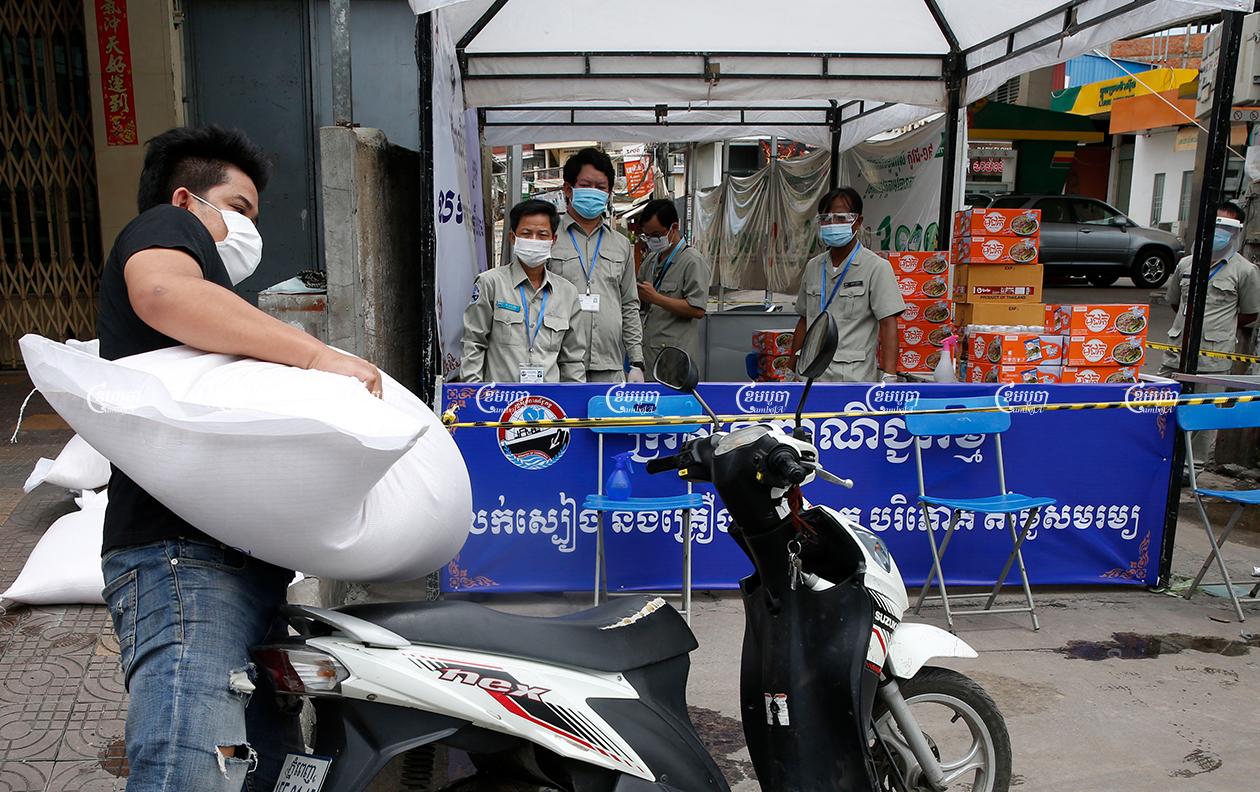
The Commerce Ministry has been assigned to supply food in the red zones and currently is selling noodles, rice, soy sauce, fish sauce, pickles, and Vital water. It is unclear what will happen in larger Phnom Penh once the markets are closed.
Sopheap said it made little sense for the ministry to operate independently and it should be working directly with market vendors — who already have access to food, meat, and vegetable — to provide groceries for people who are in red zones.
“I think that the ministry should play a role with vendors who have skills rather than the ministry doing it by themselves, so it can be more efficient,” she said, noting that food could be safely delivered by tuk-tuk or trucks.
Seang Thai, Commerce Ministry spokesman, said the government has been producing and providing food sales in the red zones since April 20.
“We have food already but we just have some difficulty to bring food for the people who are in the red zones because people are blocked from entering this area, so the ministry contacted tuk-tuk drivers who lived in the red zone to take food to provide to the people in the red zones ” Thai said, adding that the ministry requires drivers to wear masks and plastic shields and to use hand sanitizer.
He said that the ministry has also created a website, so people can order food online and the ministry will transport it to them free of charge.
“We arranged 11 stalls near the red zones to sell food for people in red zones who have the ability to buy it,” Thai said, however, adding that those who cannot afford food can request free food from the ministry by talking with their local authorities.
On Saturday afternoon the Health Ministry said that it had recorded 509 new cases of COVID-19, including 126 cases in Preah Sihanouk, 318 cases in Phnom Penh, and the rest in Banteay Meanchey, Kampong Chhnang, Kampong Thom, Svay Rieng, Tbong Khmum, Takeo, Kampong Cham, and Kandal. Phnom Penh and neighboring Takhmao City, Kandal, were placed under a two-week lockdown on April 15, and Sihanoukville was placed under lockdown on April 23.


